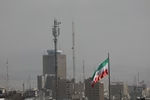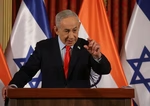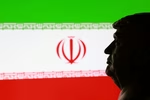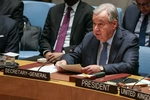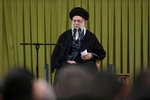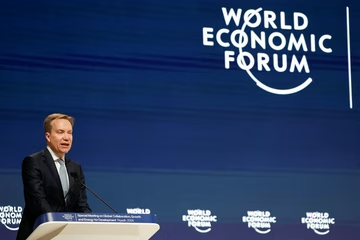
Bosnia's newly elected Croat Presidency member, Zeljko Komsic, sent an open letter to EU officials and institutions responding to Croatian MEPs who sent a number of letters to EU institution in which they “stated a number of untruths regarding the election process in Bosnia and Herzegovina.”
Komsic, who comes from the centre-left Democratic Front (DF) addressed the letter to the President of the European Parliament Antonio Tajani, Head of the European Commission Jean-Claud Juncker, EU High Representative Federica Mogherini, EU's Commissioner for Enlargement Policy Johannes Hahn and other members of the European Parliament (MEP).
He said he was forced to send the letter due to an “open diplomatic aggression of an EU member state against Bosnia and Herzegovina who also submitted its request for EU membership.”
European Parliament members from Croatia have on Thursday expressed "deep concern" over the election process in Bosnia and Herzegovina in a letter addressed to top EU officials. They claimed that Bosniak voters had elected the Bosnian Croat member of the country’s tripartite presidency and asked for the issue to be discussed at the next Foreign Affairs Council (FAC) meeting.
Bosnia’s Presidency consists of three members, each coming from three constituent peoples in the country: Bosniaks, Serbs and Croats. After the recent general election in Bosnia, the new members are Zeljko Komsic from the Croat people, Sefik Dzaferovic from the Bosniak people and Milorad Dodik, from the Serb people.
However, Komsic's legitimacy is contested by all the major Croat parties in the country saying that his election was not legitimate because he was not elected by Croats, but by Bosniaks.
Regardless of these claims, Komsic’s election is, indeed, legal, Constitutional and legitimate, because the state Constitution stipulates that Presidency consists of one Bosniak, one Croat and one Serb member. There is no mention of what ethnic group must vote for what candidate.
In his letter, Komsic also said that Bosnia's October general election was held in line with the country's constitution and the state election law.
The newly elected Croat Presidency member noted that Croatian MEPs showed a political tendency of violating the Dayton Peace Agreement that ended the war in Bosnia (1992-1995) and threatened Bosnia's sovereign right to elect its political representatives.
According to him, their letter is yet another attack of the Republic of Croatia on Bosnia's sovereignty and is a direct interference in Bosnia's internal matters, which is contrary to international law and the usual relations between two states.
"The Dayton Peace Agreement contains the Annex 4 which is also the Constitution of Bosnia and Herzegovina and it defines the way in which Bosnia's tripartite Presidency members are elected. The same definition is contained in Bosnia's Election Law," he said. "Therefore the latest election result for the Croat Presidency member is no different than any earlier result and is Constitutional and legal. Denial of the legality of Bosnia's election process which stems directly from Bosnia's Constitution represents a direct violation of the Dayton Peace Agreement to which the Republic of Croatia is one of the signatories."
Komsic recalled all the attempts to amend the Election Law in part concerning the election of members of the House of Peoples of the Federation of Bosnia and Herzegovina entity (FBiH), but not the election of Bosnia's Presidency.
He added that the talks were aided by experts from the EU and the US but that members of the largest Croat party in the country, the Croat Democratic Union (HDZ BiH) showed no will to find a solution, insisting on their proposal which is contrary to European democratic standards, several verdicts of the European Court of Human Rights and other EU recommendations.
In 2017 and 2018, he added, the EU's Foreign Affairs Council requested that the principles of equality and non-discrimination of all citizens must be guaranteed by Bosnia and Herzegovina. The letter sent by the Croatian MEP's to the FAC clearly demands that the Council changes its previous positions and adopts a new conclusion by which, in addition to the existing discriminatory provisions, Bosnia should introduce additional discriminatory provisions that would restrict the residents' right to vote in a way that only Croats can vote for Croats, Serbs for Serbs and Bosniaks for Bosniaks.
Komsic accused the Croatian MEPs of spreading religious and national hatred through political parties like the HDZ BiH, who did not achieve the wanted election result.
"Such actions by the said MEPs can result in the violation of Bosnia's and regional stability," he noted.
"All the relevant state institutions in charge of implementing the election process in Bosnia have verified the election of all the Presidency members as completely legal and in line with Bosnia's Constitution. All the relevant international factors have also confirmed that Bosnia's election process was constitutional. Croatian MEP's are committing an act of diplomatic aggression against Bosnia for two reasons: challenging the undisputed (election of members of Bosnia's Presidency) and forcing segregationist amendments to Bosnia's Election Law."
He expressed his belief that the EU will recognise everything that he said in the letter and that they will not allow Bosnia to become unstable and undemocratic.
Kakvo je tvoje mišljenje o ovome?
Učestvuj u diskusiji ili pročitaj komentare





 Srbija
Srbija
 Hrvatska
Hrvatska
 Slovenija
Slovenija












